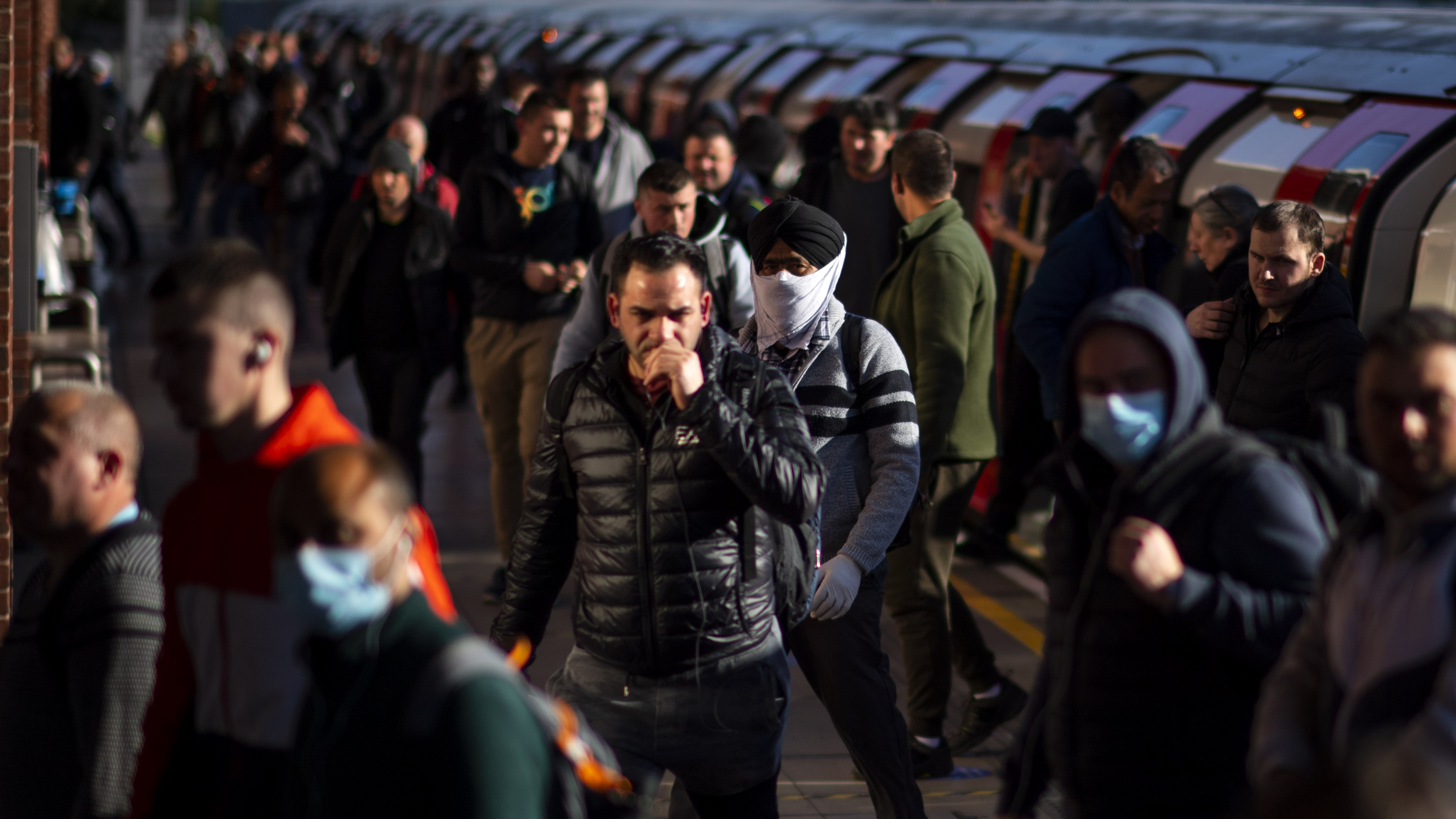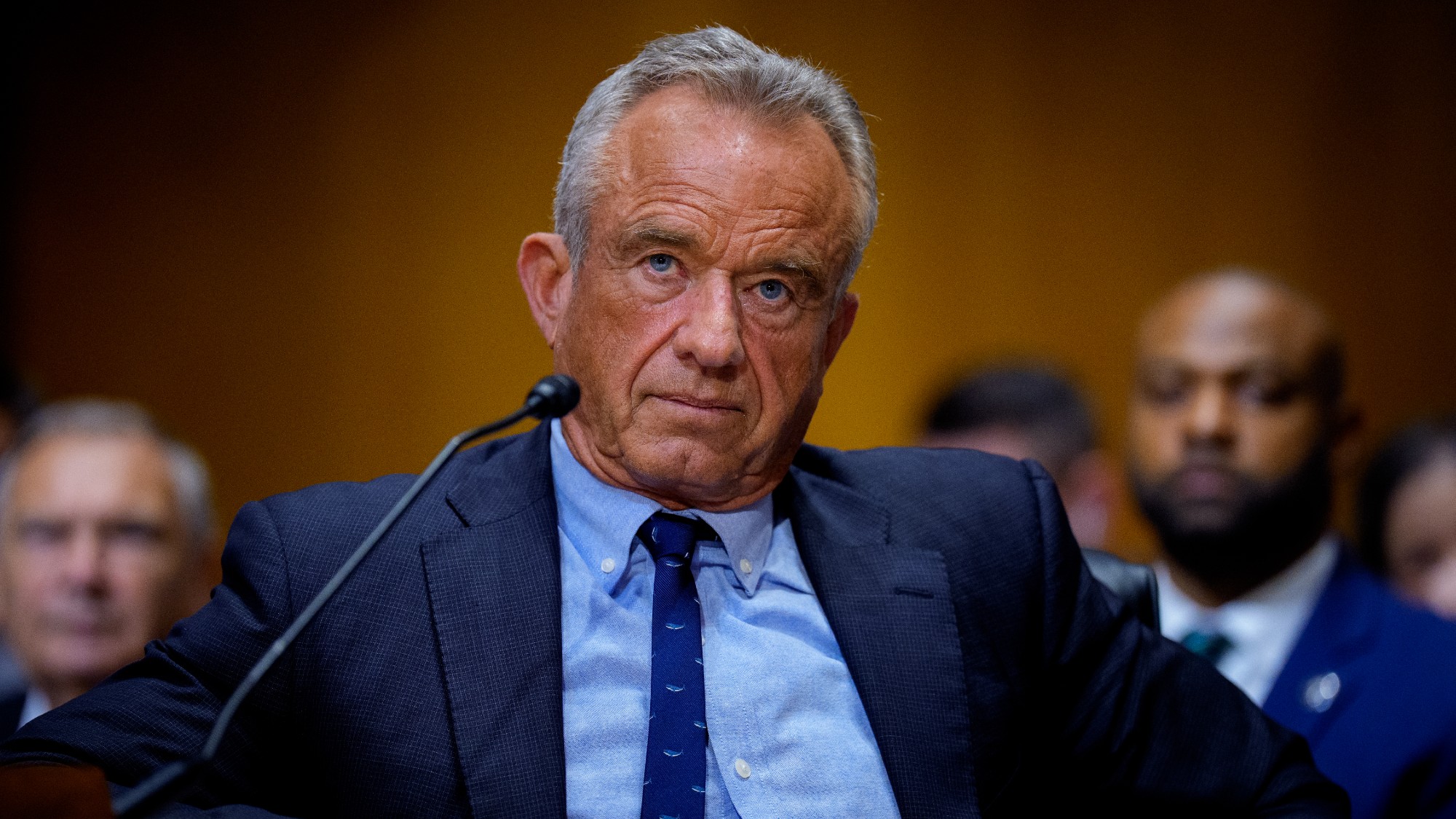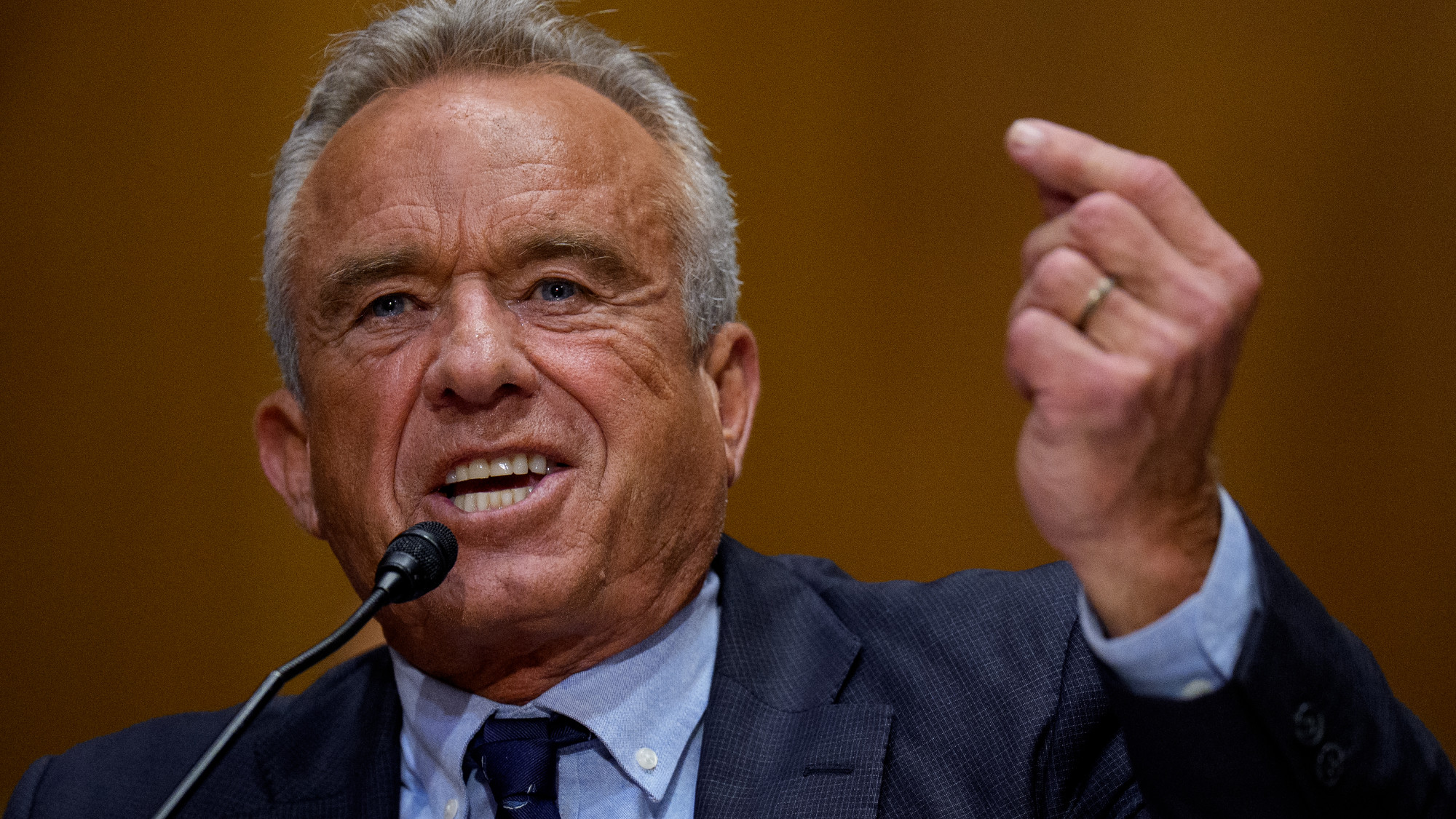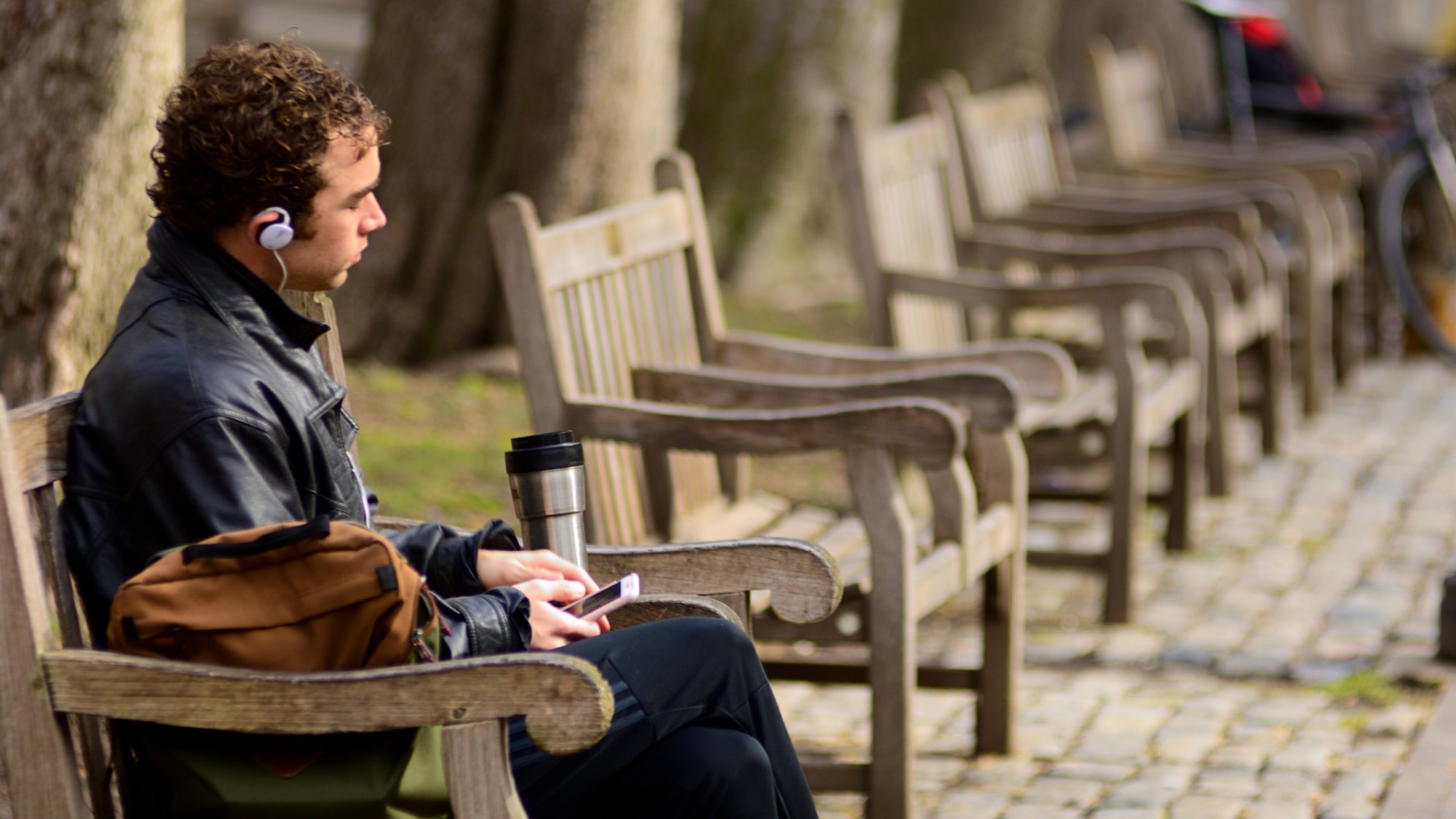Coronavirus: what’s the strategy for ending lockdowns if Covid immunity lasts for just months?
Massive new study punctures hopes of long-lasting vaccine

A free daily email with the biggest news stories of the day – and the best features from TheWeek.com
You are now subscribed
Your newsletter sign-up was successful
Immunity to coronavirus may only last for a few months after infection, according to new research findings that point to another obstacle to rolling out a vaccine.
The percentage of the UK population who have developed Covid antibodies had fallen by a more than a quarter since June to fewer than one in 20 people in the UK as of last month, the Imperial College London (ICL) study suggests.
The researchers say the “rapid” deterioration in immunity means that any successful vaccine may need to be administered twice a year unless the jab proves more powerful than natural immunity, The Telegraph reports.
The Week
Escape your echo chamber. Get the facts behind the news, plus analysis from multiple perspectives.

Sign up for The Week's Free Newsletters
From our morning news briefing to a weekly Good News Newsletter, get the best of The Week delivered directly to your inbox.
From our morning news briefing to a weekly Good News Newsletter, get the best of The Week delivered directly to your inbox.
Fantasy immunity
The new research was commissioned by the Department of Health and was based on an analysis of home fingerprick test samples from 365,000 adults to establish “detectable antibody levels” over three months.
In June, shortly after the first coronavirus wave, 6% of the population had developed antibodies. But by September, the figure had fallen to 4.4%, “with most of the decline happening within just six weeks”, says The Telegraph.
The steepest fall “was seen in those most in need of protection”, adds the newspaper, with a 39% drop in people over the age of 75. The age group account for around three-quarters of Covid-related deaths in the UK.
A free daily email with the biggest news stories of the day – and the best features from TheWeek.com
By contrast, antibody levels fell by 15% among people aged between 18 and 24.
Professor Wendy Barclay, head of the Department of Infectious Disease at ICL, said the declines in antibody rates show that the UK is “miles off” achieving herd immunity.
Escaping lockdown
“When you think that 95 out of 100 people are unlikely to be immune, and therefore likely to be susceptible, then we are a long, long way from anything resembling a population level protection against transmission,” said lead study researcher Helen Ward, a professor of public health.
Echoing that warning, fellow researcher Barclay cautioned that Covid herd immunity is unlikely to emerge and that the coronavirus is more likely to work like a common cold.
“Seasonal coronaviruses that circulate every winter and cause common colds can reinfect people after six to 12 months – and we suspect that the way that the body reacts to infection with this new coronavirus is rather similar to that,” she said.
“We don’t yet know what level of antibody is needed in a person’s blood to protect them from infection or reinfection,” added Barclay, but “most of the vaccine strategies are aiming to produce that level, and that level will feed into whether or not a population becomes immune or has any level of immunity”.
With hopes “dashed” that natural immunity could alleviate the need for lockdown regulations, a vaccine may be the only means to ensure widespread protection, says Sky News.
Barclay told The Guardian that the “results do not necessarily mean that immunity arising from vaccination would be short-lived”.
“A good vaccine may well be better than natural immunity,” she explained.
However, the results do suggest that the UK will have to wait for a vaccine before measures to control infections can be eased.
Graham Cooke, a professor of infectious diseases at ICL, said that “the need for a vaccine is still very large if you want to try and get a large level of protection in the population. People are starting to think about what we will need to do to boost vaccines periodically to keep levels of protection high.”
Killer cells
The ICL team point out that their study did not look into other forms of natural immunity. Several other research projects are currently examining whether T-cells, a type of white blood cell that forms part of the human immune system, could form part of a natural protection against the virus.
T-cells “thwart infections in two different ways”, says Science magazine: by encouraging other cells to produce antibodies and by destroying infected cells.
Some of this other research has “raised the possibility” that “T-cells, which can kill infected cells, or B memory cells, which can rapidly produce new antibodies”, may be another route towards gaining some protection against Covid, The Guardian reports.
However, the ICL scientists “said it is too soon to know if that is the case, or for how long that protection might last, while it is difficult to measure levels of such T-cells”, the paper adds.
“The fact that people get reinfected regularly throughout their lives with seasonal coronaviruses [that cause some common colds] suggests that the immunity, whether or not it is antibody mediated and/or T-cell mediated, probably isn’t very long-lasting,” said Barclay, who added that the team suspect the body reacts to infection with the new coronavirus in a similar way.
As research into immunity continues alongside the race to find a vaccine, study co-author Cooke says that adhering to Covid restrictions is the best line of defence for the time being.
“The big picture here is that after the first wave, still the great majority of the country didn’t have evidence of protective immunity,” he said.
Joe Evans is the world news editor at TheWeek.co.uk. He joined the team in 2019 and held roles including deputy news editor and acting news editor before moving into his current position in early 2021. He is a regular panellist on The Week Unwrapped podcast, discussing politics and foreign affairs.
Before joining The Week, he worked as a freelance journalist covering the UK and Ireland for German newspapers and magazines. A series of features on Brexit and the Irish border got him nominated for the Hostwriter Prize in 2019. Prior to settling down in London, he lived and worked in Cambodia, where he ran communications for a non-governmental organisation and worked as a journalist covering Southeast Asia. He has a master’s degree in journalism from City, University of London, and before that studied English Literature at the University of Manchester.
-
 Crisis in Cuba: a ‘golden opportunity’ for Washington?
Crisis in Cuba: a ‘golden opportunity’ for Washington?Talking Point The Trump administration is applying the pressure, and with Latin America swinging to the right, Havana is becoming more ‘politically isolated’
-
 5 thoroughly redacted cartoons about Pam Bondi protecting predators
5 thoroughly redacted cartoons about Pam Bondi protecting predatorsCartoons Artists take on the real victim, types of protection, and more
-
 Palestine Action and the trouble with defining terrorism
Palestine Action and the trouble with defining terrorismIn the Spotlight The issues with proscribing the group ‘became apparent as soon as the police began putting it into practice’
-
 NIH director Bhattacharya tapped as acting CDC head
NIH director Bhattacharya tapped as acting CDC headSpeed Read Jay Bhattacharya, a critic of the CDC’s Covid-19 response, will now lead the Centers for Disease Control and Prevention
-
 How corrupt is the UK?
How corrupt is the UK?The Explainer Decline in standards ‘risks becoming a defining feature of our political culture’ as Britain falls to lowest ever score on global index
-
 Childhood vaccines: RFK Jr. escalates his war
Childhood vaccines: RFK Jr. escalates his warFeature The health secretary cut the number of recommended childhood vaccines from 17 to 11
-
 The high street: Britain’s next political battleground?
The high street: Britain’s next political battleground?In the Spotlight Mass closure of shops and influx of organised crime are fuelling voter anger, and offer an opening for Reform UK
-
 Is a Reform-Tory pact becoming more likely?
Is a Reform-Tory pact becoming more likely?Today’s Big Question Nigel Farage’s party is ahead in the polls but still falls well short of a Commons majority, while Conservatives are still losing MPs to Reform
-
 Taking the low road: why the SNP is still standing strong
Taking the low road: why the SNP is still standing strongTalking Point Party is on track for a fifth consecutive victory in May’s Holyrood election, despite controversies and plummeting support
-
 RFK Jr.’s anti-vaccine crusade comes under fire
RFK Jr.’s anti-vaccine crusade comes under fireFeature Robert F. Kennedy Jr. faced a heated hearing as senators accused him of lying and spreading chaos
-
 Hostile architecture is 'hostile — to everybody'
Hostile architecture is 'hostile — to everybody'Instant Opinion Opinion, comment and editorials of the day